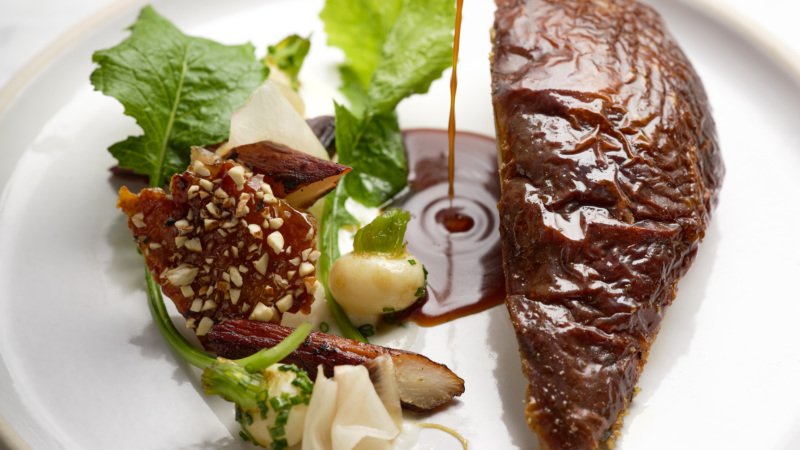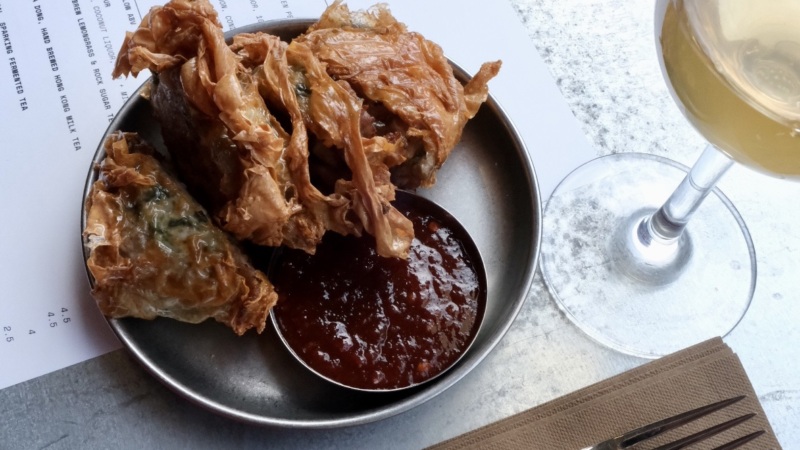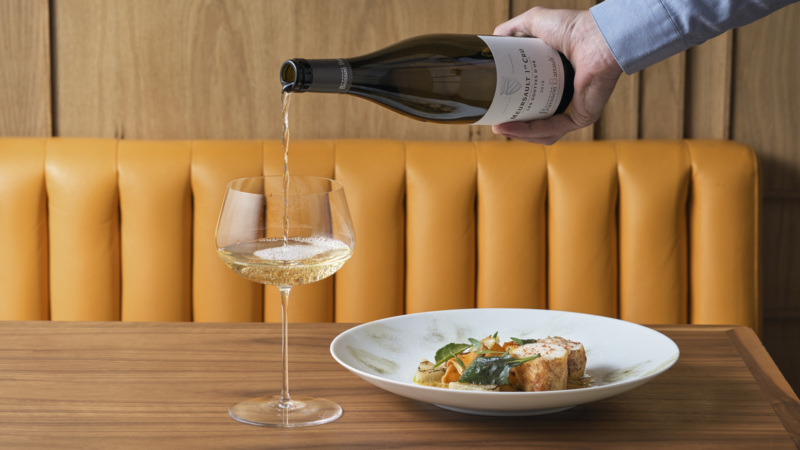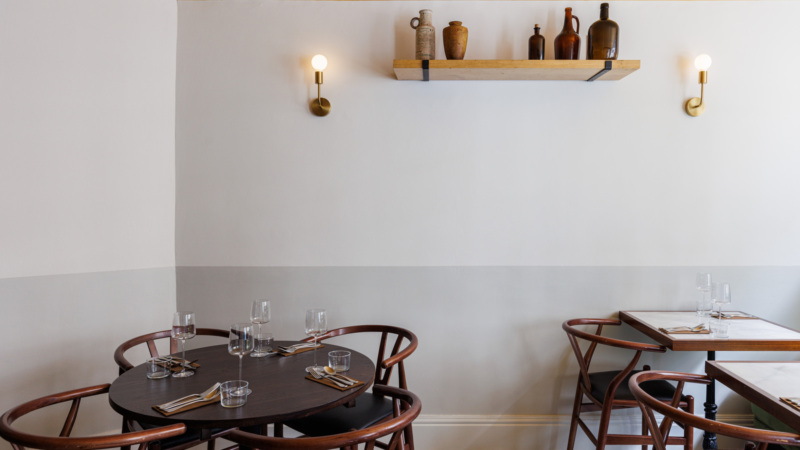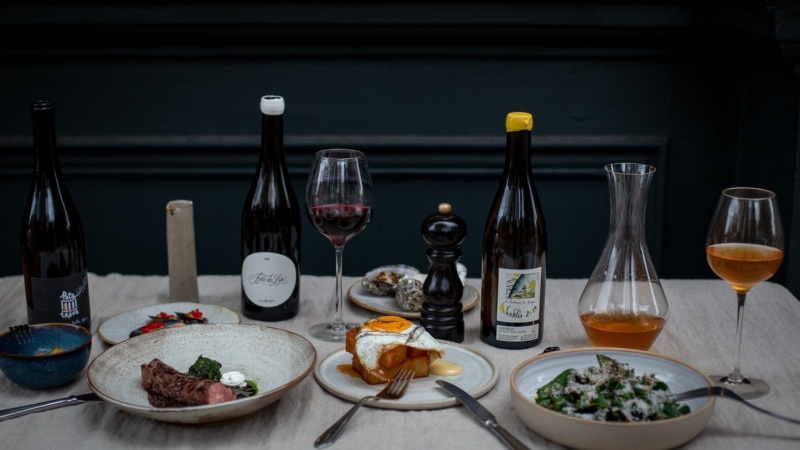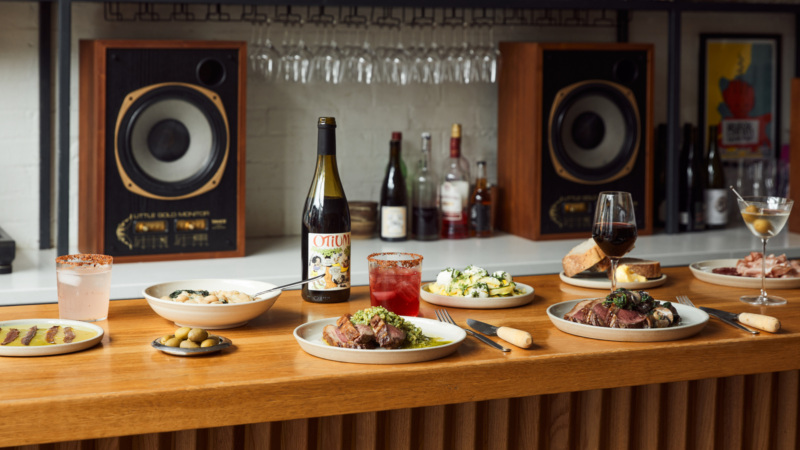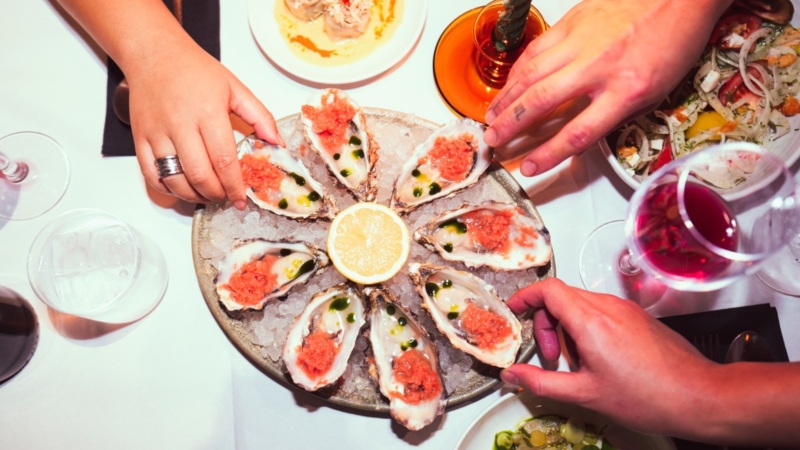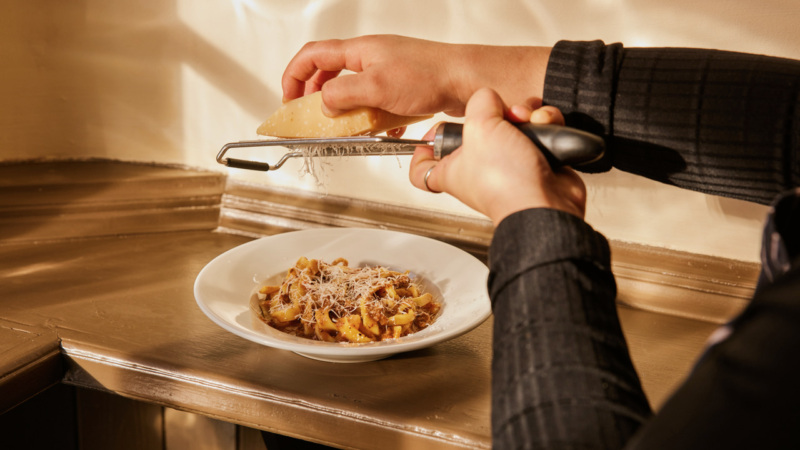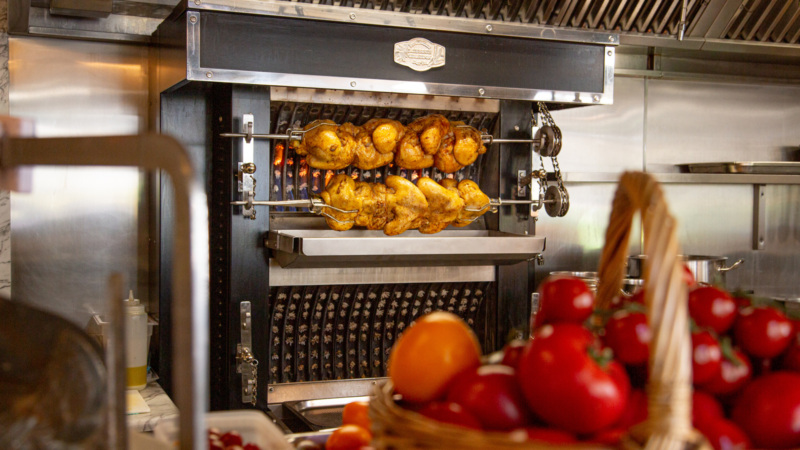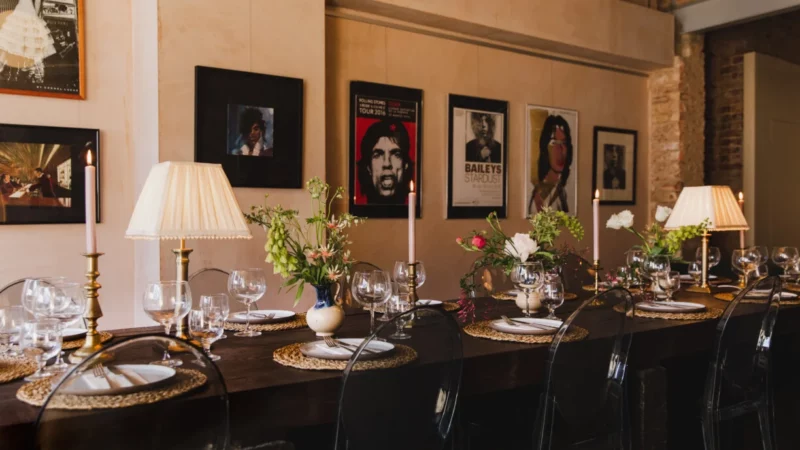
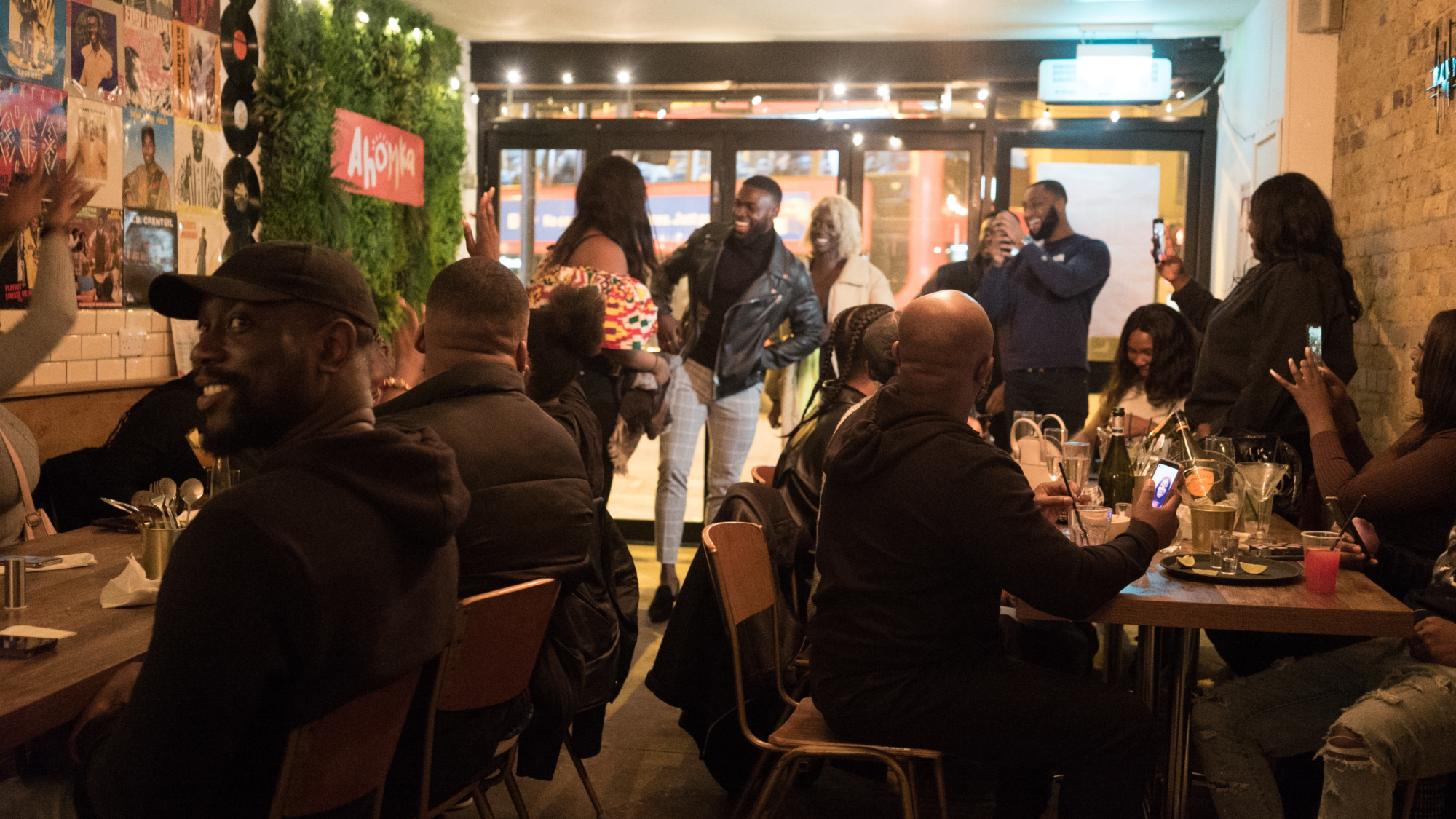
In The Food Industry, The Odds Have Always Been Stacked Against Black People
Published:
Growing up with a stoutly Jamaican and Caribbean family who were sure to ingratiate us with island food and culture since birth, all elements of that culture have been a part of my life since I can remember. It was only when I left the confines of my family environment that I realised my upbringing was alien to the rest of the UK. Some years later I realised little had changed, which spurred me to create Belly Full, a series of books that aimed to illustrate the rich culture of commercial Black food in the UK.
As anyone who’s spent time in the restaurant and food industries will attest, it’s one of the most economically unforgiving customer service businesses out there. Margins are razor-thin, meaning a misfortunate series of events can lead to peril. However, it never occurred to me how much harder it was to exist in this business just by nature of being Black until I spoke with hundreds of head chefs and owners in the process of making the first book. I heard struggles ranging from getting media coverage, investment and a commercial space — even if funds had been secured.
For an industry faced with rampant closures every year, it still managed to be worth an estimated £40 billion in 2019 and yet, assessing this pie, Black faces are consistently absent. Any attempt in 2020 to contradict this proves the point especially, as most people would be hard-pressed to name more than five high-profile Black chefs and restaurateurs. From top to bottom, whether you’d care to admit it or not, the British food industry is, for the most part, systemically dominated and gatekept by white people, leaving them to reap the rewards of the industry. This leaves Black British people in the industry effectively needing to be chosen by people outside their community to have any chance of success.
Let’s start with chefs. Regardless of how prestigious the education is at institutions like Leith’s, there’s no substitute for learning the intricacies of running a successful restaurant other than proximity to an already successful restaurant’s inner workings (and even that doesn’t guarantee success the next time around). I can’t count the number of times I’ve read the byline for a new restaurant opening in which the new owners are described as “Ex-insert trendy restaurant.”
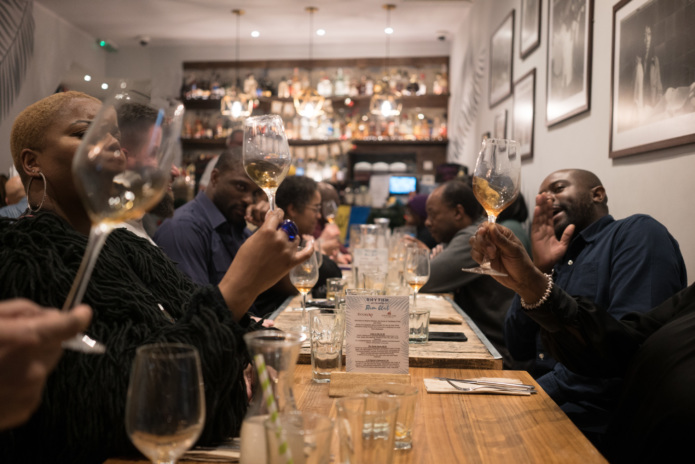
Here, the restaurant space is no different from that of the British corporate office in terms of upper level diversity or lack thereof. Black and South Asian chefs lead just 6% of Michelin-starred restaurants in the UK, and only two Black chefs have Michelin stars (a tight-lipped organisation with zero accountability regarding the diversity of their inspection teams). Moreso, as of 2019, of that number only three were female, meaning racial exclusion layered with gender discrimination puts Black women a step back further.
While restaurants are happy to colonise ingredients once seen as exotic and foreign, the representation of faces descending from those regions pales in comparison — never mind that the numerous restaurants I’ve worked at and scores of others are able to thrive literally off the backs of Black labour, wilfully underpaying kitchen porters and cleaners who are, more frequently than not, Black.
*****
Without access to the upper circles of the culinary world, most are left to go into business for and by themselves. This uncovers a wider issue in British society, which is Black access to upstart capital.
From racist residential zoning practices and a lack of employment opportunities, Black people haven’t been able to cultivate generational wealth to be able to rely on an internal community for access to finance, and so it remains that many have to go outside the community to seek funding. Aspiring Black business owners often struggle to get significant investment to assist in growing their businesses — and while Black and other ethnic minority groups accounted for 50% of start-up loans, these only range from £500 to £25,000, barely a deposit and a months’ rent in Zone 1-5 in London today.
Factoring in the gentrification of heavily Black-populated areas also means that rents can skyrocket at any time in the future, limiting would-be business owners in what they can hope to start up. A government report even stated “It has not always been easy for the banks, or for the relevant Government departments, to know who to turn to, and how to engage ethnic minority businesses.” This is further compounded by the well-documented bigotry of some landlords, meaning that even if funding is secured, a premises is not guaranteed.
Further up the ladder, amongst the Venture capital (VC) industry that represents the underpinning capital of the bigger names in UK hospitality, only around 3% of those in decision making capacities are Black. While these funds can run any number of financial models on an opportunity, time and again it’s seen how personal and founder-driven most investments end up being. The majority of VCs are white males from college backgrounds, and studies demonstrate that VCs still give most of their money to white men from college backgrounds — so it stands to reason that it’s unlikely that an investor will continually take punts into the unknown like they might a white counterpart.
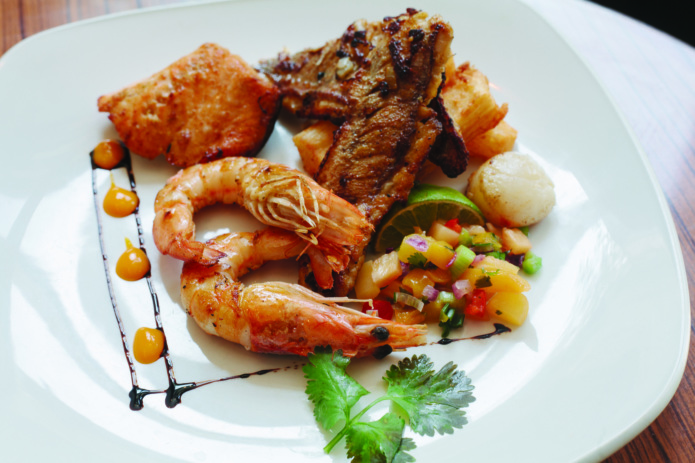
Even if a restaurateur possesses capital, funding, and talent , the role that the media, publishing and television has played in propelling chefs from kitchen dwellers to household names can’t be understated. From here, the spoils can include all manner of prizes, from lines of mass-produced sauces to microwave meals that double as a license to print money. There’s also, of course, the raised profile, which leads to the financial resources to create a small empire. For the longest time, the UK food media was subject to checkbox ticking: in this space, only a miniscule number of Black faces could appear on our TV screens within each genre, and these faces were the ones deemed palatable for a white British audience by white people in positions of executive power.
For generations, Black faces on UK food television were the exception rather than the norm. Over the years, we’ve been represented by one face rarely overlapping, and they dare not appear on screen together. Rustie Lee, Ainsley Harriott, and Levi Roots have all been pioneering names in “Black food” over the years, all of Jamaican descent. As a Jamaican descendant myself, I can tell you three people could barely represent the food of one Jamaican parish, let alone the rest of the Caribbean’s wealth in the UK’s diverse Black diaspora. These are the select few chosen by TV executives in the UK of which the majority of people in decision making positions are overwhelmingly white.
Book publishing, another billion-pound industry that feeds into the restaurant ecosystem is also not without its faults. The CEOs of every single major UK publisher are white, indicating a lack of upper level diversity. In this space, white chefs are given free roam to become experts on any number of international cuisines, creating business models and getting them off the ground after seemingly being inspired by a gap-year holiday. Book deals are plentiful, with the top white chefs churning out new books frequently. Meanwhile, Black chefs are left in the pigeonhole of Caribbean, African, and “soul” food. Alongside their ethnic minority counterparts, they usually have to provide an extensive autobiographical odyssey into their heritage to justify their existence in the food scene, as if that was all they had to offer the culinary world.
*****
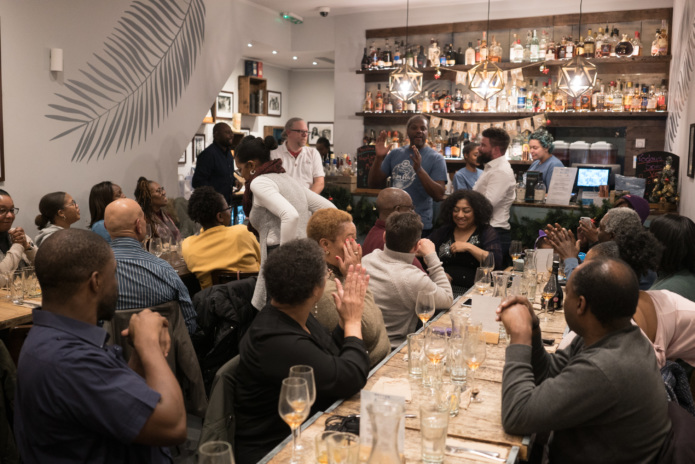
So, being able to exist in limited areas and having limited access to finance means being limited to takeaway shops, street food stalls and smaller outfits, which then rarely fall into the area of being covered by a handful of prominent reviewers (all predominantly white) from the UK’s food media. This narrow lens limits awareness, which means not being patronised by a wider community, which in turn means no hope for reaping the same financial gain without leaps of marketing wizardry or pandering to food crazes.
Furthermore, perceptions of regions, cultures, and their food are inextricably linked. There’s a reason Nigerian food, for example, doesn’t have the same air of sophistication as Italian food even though, at their root, both are matriarch-driven, rustic cuisines made using fresh produce and leaves, herbs, elaborate vegetable sauces, and accompanied by starch and carbohydrates. For centuries, generational images fed to Britain of Africa and other Black regions of the world have been fraught with poverty, meaning that little of substance from these regions is associated with erudition. In a cutthroat industry with miniscule margins, these perceptions limit what consumers may be willing to pay — and that’s if they do at all.
Even if diners did happen to seek out the cuisine of Black communities, it’s no guarantee that said communities would profit from their custom. Of the largest Japanese, Mexican, and Caribbean restaurant chains in the UK, it’s interesting to note that none are owned by people from their respective regions. What this says is that a food is more likely to become popular and has a larger spectrum for success if created by and marketed through a lens that white consumers can understand. Recipes are altered, names are changed, and ambience is sterilised or presented with stereotypes (in our case: palm trees, umbrella-laden cocktails, and Bob Marley). This leaves any Black chefs and restaurateurs that try to cook from an authentic standpoint, experiment with their own heritage, or attempt anything creative — yet again — out in the cold.
At every step of the literal food chain, Black entrepreneurs in Britain effectively need to be chosen by people from non-Black backgrounds, usually white. (Whether this touches on larger identity discussions on who gets to be “British” is a longer topic and worthy of separate discussion.)
Thankfully, Black chefs and entrepreneurs have been able to carve something of a niche in the food scene through alternate channels such as e-books, social media pages, and pop-ups. Many minority groups, not just Blacks, are now trying to reclaim the narratives behind their heritage food, and the diaspora from those regions are now exploring a wider base of global cuisines. While previous gatekeepers may have received the benefit of the doubt, today the ubiquity of social media and easy access to information negates any excuse. Now, it means that they simply aren’t looking — or are happy to allow the wider public to believe that we don’t exist.
Riaz Phillips is a writer, photographer, publisher and the author of Belly Full: Caribbean Food in the UK. He is based in London. Follow him on Instagram and Youtube. Follow @Resy, too.
Discover More


